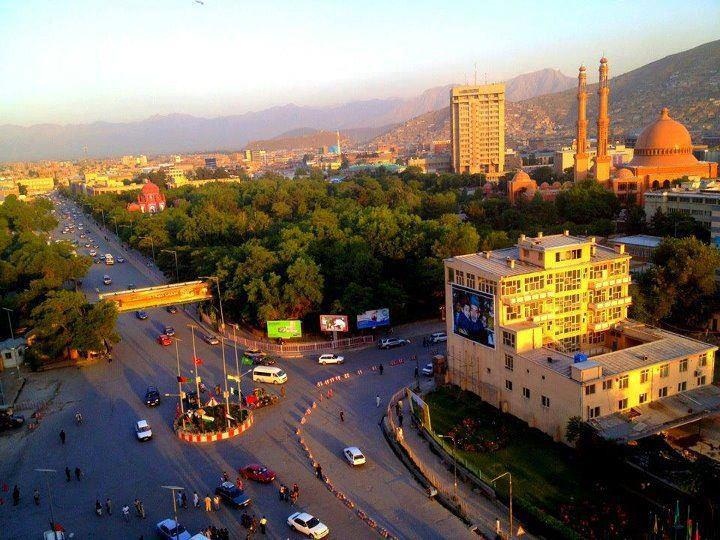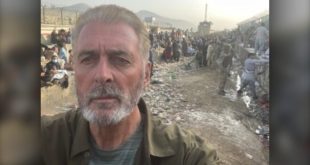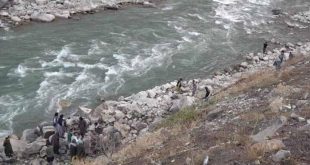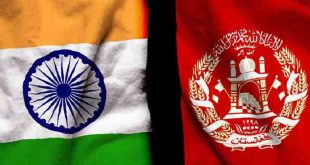AT-KABUL – The UN Security Council undertook a visit to the Islamic Republic of Afghanistan from the 13th to 15th of January 2018. The first Council visit to Afghanistan since 2010, the visit was an opportunity to reiterate the Security Council’s support for the Government and people of Afghanistan and their efforts to restore peace, stability and progress to the country.
According to a statement issued by the UNAMA, the Council members aimed to get a first-hand account of progress made by the Afghan National Unity Government, with the assistance of the international community, in addressing a wide range of interconnected challenges and to learn how the Security Council could further assist efforts on the ground.
The visit was organized by Kazakhstan which holds the Presidency of the Security Council in January 2018. Kazakhstan, as the first country of Central Asia elected to the Security Council, strives to promote strong cooperation among neighbours – critical for promoting stability and prosperity in and around Afghanistan – by emphasizing ways in which regional initiatives in support of economic development in Afghanistan could maximize mutual benefits and common security. As such, more efforts should be made to integrate them through a comprehensive, regional approach.
The leader of the Security Council delegation, Ambassador Kairat Umarov, the Permanent Representative of Kazakhstan to the UN, was accompanied on this trip by representatives of the United States, Plurinational State of Bolivia, Côte d’Ivoire, Equatorial Guinea, Ethiopia, Kuwait, Kingdom of the Netherlands, Peru, Poland, Sweden, France, Russian Federation, the United Kingdom and China.
During the visit to Kabul, the delegation held meetings with the President of Afghanistan, Ashraf Ghani, Chief Executive Abdullah Abdullah, and other senior Afghan officials, including the chairman of the High Peace Council Mohammad Karim Khalili, and Ministers of Foreign Affairs, Interior, Finance, Agriculture, Economy, Trade and Commerce, among others. They also met with members of parliament, women’s NGOs, civil society organizations, representatives of political parties and the electoral management bodies, as well as the leadership of the United Nations Assistance Mission in Afghanistan (UNAMA) and NATO’s Resolute Support Mission.
Discussions focused on the political, security, socio-economic and human rights situation in the country. The visit came ahead of the Kabul Process meeting, scheduled for February 2018, where the Government is expected to present its plans for a more structured peace and security process, coordinated with the wider region. All parties underlined the importance of an inclusive Afghan-led and -owned peace process for long-term stability and prosperity in Afghanistan and Council members renewed their commitment to support efforts that aim at bringing peace and reconciliation.
Council members reiterated their support for the Government’s reform initiatives, in particular to counter corruption and accelerate regional cooperation. They expressed concerns about the security environment in Afghanistan, including the presence of Al-Qaeda, Taliban and ISIL-Khorasan Province-affiliated fighters, as well as about the nexus of terrorism and organized crime. All parties reiterated the need for greater international and regional security cooperation.
Members of the Independent Election Commission and the Electoral Complaints Commission briefed the delegation on the preparations for the upcoming parliamentary and district council elections in 2018, including the development of an improved voter registry. Council members underscored the importance of continued progress on electoral reforms and towards the holding of free and fair, as well as timely, credible and inclusive parliamentary and presidential elections in 2018 and 2019, respectively. They reiterated the need to increase women’s participation in the election.
The Security Council mission also took the opportunity to reiterate its strong support for UNAMA and its Head, the Special Representative of the Secretary-General for Afghanistan.
Security Council members emphasized the need to adopt a regional and integrated security and development approach, which Kazakhstan is proposing as the path to sustainable development, durable peace and stability in the region. Discussions in Kabul stressed the need to view Afghanistan not as a threat to security in the region but as an important partner. It is critical to integrate the economies of Afghanistan and neighbouring countries, including Central Asian States, through enhanced interaction and connectivity, inter alia, by implementing regional infrastructure, trade, investment, transit and transportation projects.
The interlinkages between security and development were highlighted. Security would allow the realization of regional economic projects, the intensification of investments, trade facilitation and infrastructure development, which would result in the creation of jobs, help diffuse tensions and counter incentives of conflict. Government representatives noted that to this end further investment would be needed to boost regional projects for economic cooperation, including projects on electricity provision, trade facilitation, infrastructure development and transit. They expressed satisfaction with the recent increase of trade between Afghanistan and its neighbours. Afghan authorities expressed hope for the rapid implementation of projects such as TAPI and CASA-1000 projects, the development of railway corridors from Central Asian countries, China and Iran to South Asia through the territory of Afghanistan, as well as the development of the ports of Gwadar and Chabahar to provide Central Asian countries with access to warm waters.
Both Security Council members and Afghan officials called for improved cooperation and coordination in the region, underscoring the need for the international community, particularly neighbouring countries, to support and cooperate with Afghanistan, especially in countering terrorism.
They also called for further streamlining of efforts between UN agencies on the ground and better cooperation between UN agencies and regional organizations operating in the region.
 Afghanistan Times
Afghanistan Times




